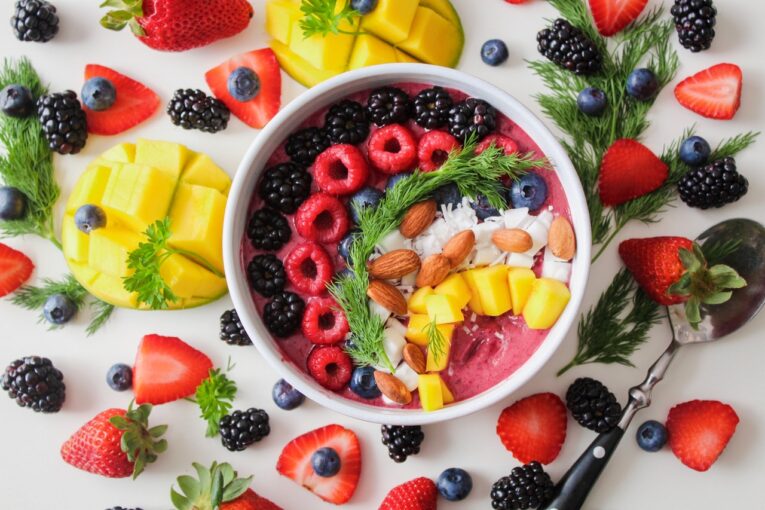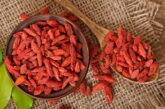
Take vitamins have long been regarded as a prerequisite to good health. In fact, health experts agree that these organic molecules are needed to be taken by the human body in trace amounts for good health. According to these experts, a person deprived of a particular vitamin eventually show symptoms of diseases peculiar to that vitamin. The importance of vitamins for good health is a fact well known to everyone. Even children at primary school are well aware of this because they are educated on the importance of vitamins for their body. But while everyone knows the importance of vitamins, not everyone knows where to get them. In fact, many believe that the only source of vitamins is the medicine bottle. Vitamins, however, are not limited to those sold in pharmacies as dietary supplements. In fact, vitamins exist naturally. To give more light on this subject, it may be best if you first give information on the basic types of vitamins available today. The basic types of vitamins available in the MarketThere are three general types of vitamins sold on the market today. These three types are the natural vitamins, vitamins, crystalline and synthetic vitamins. • VitaminsNatural natural vitamins are the vitamins that can be easily found in natural foods. If transformed into a commercial food supplement, Vitamin must have all its components intact, including its enzymes, coenzymes, minerals, mineral activators, and aid co-vitamin. • Crystalline vitamins are VitaminsCrystalline these vitamins that are extracted from natural sources of food, but have already been treated with different chemicals at high power, solvents, heat and distillations to separate specific vitamins, all other components of synergistic related. As such, these vitamins have a very simple structure compared to the complex structure of natural vitamins. • Synthetic vitamins are VitaminsSynthetic these vitamins that were formed chemically in the laboratory by scientists. Even if they do not come from any natural source, the structure of these vitamins not usually resemble those of their crystalline counterparts. As you can see, vitamins are not limited to those found in pharmacies and medicine bottles. In this article we will focus on those vitamins that can be found on the natural food sources, the natural vitamin supplements. Natural Vitamin SupplementsAccording studies, our body needs 13 vitamins for proper bodily functions. These vitamins consist of vitamins A, C, D, E, K and B vitamins The B vitamins, on the other hand, are composed of thiamine, riboflavin, niacin, pantothenic acid, biotin, vitamin B6, vitamin B12 and folate. However, all these vitamins are available in pharmacies at different concentrations. However, all these 13 vitamins can also be found on the natural food sources. In fact, a person with a variety of foods in the diet should already have trace amounts of these vitamins every day. And as has already been said, only a tiny amount of these vitamins are necessary for the body to function properly. So if you are interested in maintaining your health at its peak, then you can count on the natural vitamins that nature has to offer. Here is a list of food sources from which you can extract supplements natural vitamins: 1. Vitamin A AVitamin can be found from sources of meat and dairy products like milk, cheese, cream, liver, kidney and liver of cod. But since all these products are of high cholesterol, you can try to get vitamin A from its precursor, beta-carotene. Common sources of beta-carotene are raw carrots, sweet potatoes, winter squash, cantaloupe, spinach, mango, broccoli and some red or yellow skinned fruits and vegetables. 2. Vitamin B1 (thiamin) Common sources of thiamine are enriched breads, cereals, pasta, whole grains, lean meats, fish, peas and beans. Some dairy products, fruits and vegetables are also rich in vitamin B1. 3. Vitamin B2 (riboflavin) Dairy products like milk and yogurt are the main sources of riboflavin. Other sources are chicken meat, green leafy vegetables, fruit and almonds. 4. Vitamin B3 (niacin) foods that are rich in niacin include dairy products, poultry, fish, lean meats, nuts and eggs. Some legumes and cereals also contain traces of niacin. 5. Vitamin B5 (pantothenic acid) Vitamin B5 rich foods include fish, dairy products, poultry, lean beef, yeast and vegetables in the cabbage family. Also rich in vitamin B5 are white and sweet potatoes and peanuts and peas. 6. Vitamin B6 (pyroxidine) fruits such as bananas, watermelons and tomatoes are known sources of vitamin B6. Other common sources are chicken, broccoli, spinach, potatoes, white rice, peanuts, oats and fortified cereals. 7. Vitamin B12Meat, poultry, fish, shellfish and dairy products are rich sources of vitamin B12. 8. FolateGreen and leafy vegetables are the main source of folate, although this vitamin can also be found on the tomato juice, peas, wheat germ, oranges and mushrooms. 9. sources of vitamin cThe the most common vitamin C are citrus fruits and juices of strawberry, melon, cranberry, grapefruit and others. Most other fruits and vegetables also contain small amounts of vitamin C. 10. Vitamin DTHE more sources of vitamin D are dairy products, poultry and cereals. Apart from these food sources, the body also synthesizes vitamin D when skin is exposed to the sun’s heat. 11. Vitamin E is mainly derived EVitamin vegetable oils and products made from it, such as margarine and mayonnaise. Other sources include peanuts, whole grains, wheat germ, corn, nuts, olives, spinach and other leafy green vegetables. 12. Vitamin KLeafy and green vegetables such as cabbage and spinach are the main source of vitamin K. Other sources include soybeans, cereals, fruit, sugar beet, potato, dairy, meat and poultry. The bacteria found in the stomach and intestines can also synthesize vitamin K.

